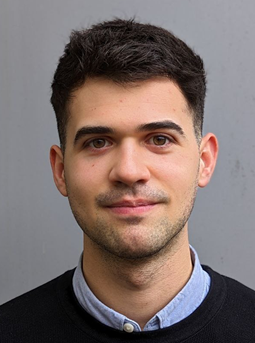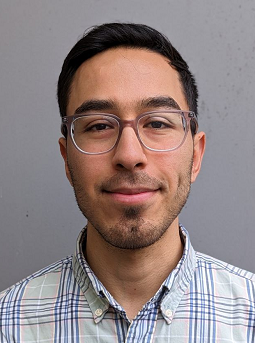Karam Sidaros
Tel.: +45 3862 3330
DRCMR, MR-forskning, Afs. 714
Copenhagen Hvidovre Hospital
Kettegard Alle 36
DK-2650 Hvidovre
DRCMR is a world of opportunities for interns from Denmark, Europe and the world. We welcome interns/volunteers from all fields with an interest in neuroscience, MRI and related fields.
The people involved in research at the DRCMR have many different backgrounds: MR technicians, radiologists, physicists, engineers, neurologists, psychiatrists, physicians, psychologists, (human) biologists, humanists, computer scientists, linguists, and chemists. Whether you come from Denmark, Europe or anywhere in the world, we recruit interns/volunteers from all these fields - as long as you have some theoretical knowledge of and an explicit interest in neuroscience. Practical experience with any of the tools/methods we use is of course an advantage. Interns/volunteers are involved in all facets of research, e.g. study initiation and design, design of experimental tasks, performing experiments and data acquisition (e.g. brain scanning, neuropsychological tests, etc.), data and image processing, statistical analyses and writing up articles.
An internship/volunteering at DRCMR can also lead to your involvement as part of a larger scientific project, e.g. for your master's thesis or indeed - if you find a supervisor sharing your enthusiasm - conducting a study yourself.
If you want to become an intern/volunteer, you should send an e-mail to Karam Sidaros at DRCMR introducing yourself and your interests.
An intern/volunteer will initially become a member of a research group associated with a supervisor. Trainees are expected to participate in:
Interns/volunteers are expected to be able to commit to at least 5-6 months at DRCMR and can be fulltime or part-time. Internships are generally unpaid, but if you are coming to Denmark from abroad, we might be able to help with housing (depending on availability). We generally do not offer summer internships since the summer is a period where most of our researchers take vacation.
If you have a prospective enquiry about internships/volunteering at DRCMR, then we recommend that you write to Karam Sidaros. For us to effectively deal with your enquiry, we request that the same enquiry is not e-mailed to multiple group leaders.
 |
Vladyslav Zalevskyi, Intern.
Being at the intersection of physics, medicine, image processing and DL, medical image analysis attracted me as one of the most challenging fields that can benefit from recent advances in AI and transform them into impactful solutions that affect people's lives. The Erasmus Mundus Joint master’s degree in Medical Imaging and Applications aligned perfectly with my interests, offering a comprehensive curriculum encompassing everything from the fundamental physics of MRI to the development of state-of-the-art image analysis algorithms.
The final semester of my master's which was dedicated to writing the thesis, I have spent at the Danish Research Centre for Magnetic Resonance (DRCMR). My experience at DRCMR was undeniably the highlight of my master's journey, and I thoroughly enjoyed my time there. I was pleasantly surprised by my colleagues' open and welcoming nature, many of whom became friends.
The aspect that truly amazed me, however, was the culture of knowledge sharing, exemplified by the multiple seminars, workshops, and guest lectures held at the centre. Through this enriching environment, I gained a wealth of knowledge and skills, and this experience further solidified my aspiration to pursue a career in academia.
DRCMR is a perfect place to learn about the clinical and research applications of neuroimaging and I would highly recommend it to any students interested in exploring academic path in this field.
 |
Alejandro Cortina Uribe, Intern
After working in the industry with radiological systems in Mexico, I wanted to dive deeper into the software for image acquisition and processing, and so I decided to come to Europe and study an Erasmus Mundus Joint master’s degree. During the master’s, not only did I live around wonderful countries and meet amazing people, but I also learned many skills regarding computer vision tasks and medical image processing.
For my thesis internship, DRCMR hosted me for six months to develop my thesis research focused on identifying Parkinson’s Disease neurodegeneration patterns in MRI images, using artificial intelligence models. I’ve been beyond happy and satisfied to understand a bit more of the neuroscience field and to learn from amazing people. I believe that anyone that is interested in applying AI tools in the medical domain should spend some proper time with clinicians and researchers, since this field requires to find an appropriate motivation and research relevance.
I think DRCMR is the best place to get involved in research as a junior, since one is constantly exposed to new topics, discussions, and state-of-the-art research, while having an excellent supporting team. I am very excited to continue working at the DRCMR for the following months as a research assistant, and work towards getting a PhD position in the future.